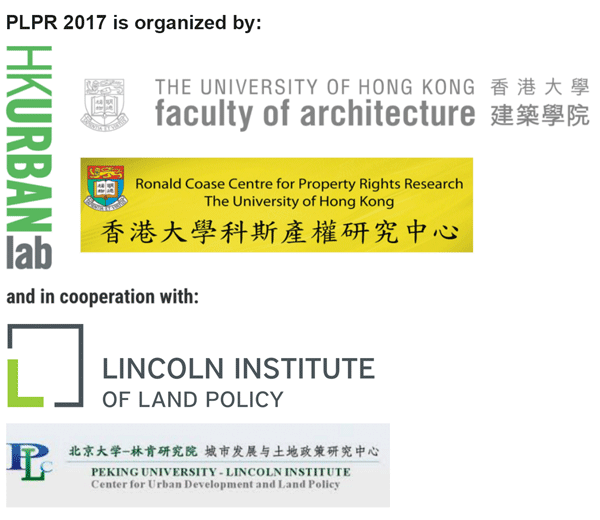Session Chairs:
Dr. Demetrio Muñoz Gielen
Dr. Prof. Erwin van der Krabben
(Radboud University Nijmegen, the Netherlands)
Dr. Prof. Rachelle Alterman
(Technion – Israel Institute of Technology)

In many developed economies public bodies are not anymore expected and/or able to pay all necessary public infrastructure in urban development (road infrastructure, parks, social facilities, affordable housing, sustainable measures, etc) and therefore increasingly pursue private financing. Fast urbanizing countries in Asia but also in the rest of the world also pursue the financial commitment of private parties. As a consequence, public land value capture instruments, and among them developer obligations, are gaining prominence among urban planning and land management instruments.
Developer obligations are contributions of property developers and landowners towards infrastructure at the time when a public body decides on land-use regulations that favor them (most of the times by increasing the economic value of their properties). Obligations can be the result of one-sided public prescription (non-negotiable developer obligations, N-NDO): these have a statutory status, and are therefore obligatory for landowners and developers willing to develop. Besides, developer obligations can also be negotiated (negotiable developer obligations, NDO). N-NDO are more regulated and framed in legislation and policies than NDO.
Call for papers
General overviews on this topic are welcome, especially from an international, comparative point of view. Abstracts, even if describing national of local experiences only, are also welcome when focussing on those aspects that are not well documented in academic literature:
- Non-negotiable developer obligations (N-NDO): there is much literature on their legal and institutional design, but less on their results in practice;
- Negotiated developer obligations (NDO): there is not much evidence of this sort in academic literature. Are they regulated? Where? (regional/national legislation, local regulations and policies). How do they relate to N-NDO? In many countries negotiated obligations evolved with time into non-negotiable obligations. Also, related aspects as transparency, accountability and corruption around these practices are welcome. Abstracts accounting evidence of the results of negotiated obligations in practice are specially welcome, as there is no much trace of this evidence in academic literature.
The Lincoln Institute of Land Policy (https://www.lincolninst.edu) is partially supporting this special session. They will be funding, on a case by case basis, the airfare (roundtrip economy class) of those participants who have been accepted to participate on this session (approved abstracts) and have no means to pay their ticket to Hong Kong. This conditional criteria is the result of limited funding, which is not enough to cover all participants.




